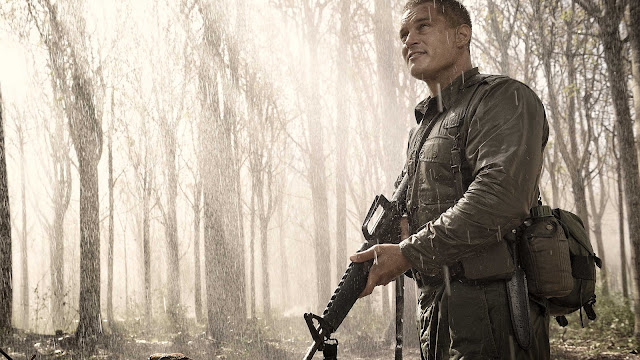Danger Close: The Battle of Long Tan: DVD Review
The war film is an obvious beast to master.
It requires a reasonable amount of character setting up, then a soupcon of tension, some action and some emotional catharsis mixed in with a denouement of tragedy and the human condition.
Red Dog's director Stenders knows that, and setting the Anzac story of a little-known battle in Vietnam, the film chooses to recreate the feeling of courage under fire as the skirmish plays out. (The 120 plus inexperienced New Zealand and Australian soldiers believed they'd only face a handful of Vietcong - whereas the reality was somewhere in the region of 2500.)
Travis Fimmel is Major Harry Smith, a would-be leader frustrated by the backroom machinations of the officers as a battle near the Vietnamese plantation Long Tan draws ever closer.
When his company finds a chance to be involved, Smith, who's determined to prove himself seizes it with lustre - but most of his troops aren't ready for conflict, or willing to commit to Smith's methodology.
Danger Close: The Battle of Long Tan recreates the battle scenes with a sheen that's polished and accomplished, as bullets fly left, right and centre. Limbs are torn, soldiers are felled and outrage boils as those behind in the camps bluster and effectively abandon their compadres in the heat of one upmanship.
But because of the script's broad strokes and brash characterisation, the sacrifices feel slight, and the beats of the movie are obvious - enemies within the same side soften, and you can almost hear what's coming next a mile away.
And don't even think about getting any kind of insight into the Vietcong as this film is less interested in portraying anything of the faceless enemy other than frenzied, screaming and in slow mo.
Much like Red Dog dealt in the interactions of the everyday, Danger Close: The Battle of Long Tan tries for similar, with more patchy results.
Fimmel goes from boggle-eyed to humbled, and his companions fare equally less well.
Danger Close: The Battle of Long Tan hits every cliche going, and then some, but still manages the kind of solid war film propaganda that it intends to do when it tries to educate.
The action is well-presented, relentless and with a small scope (and maybe some budgetary restraints), Stenders relives the theatre of war with a kind of palpable horror and intensity. But it's the more human side of the conflict that lets the film down badly, robbing it of poignancy, pose and purpose as it hurtles to its inevitable conclusion.




%20&%20Edith%20Poor%20(Lizzie%20Moyle)_%C2%A9BBCS%20&%20Bunya%20Entertainment.jpg)
No comments:
Post a Comment